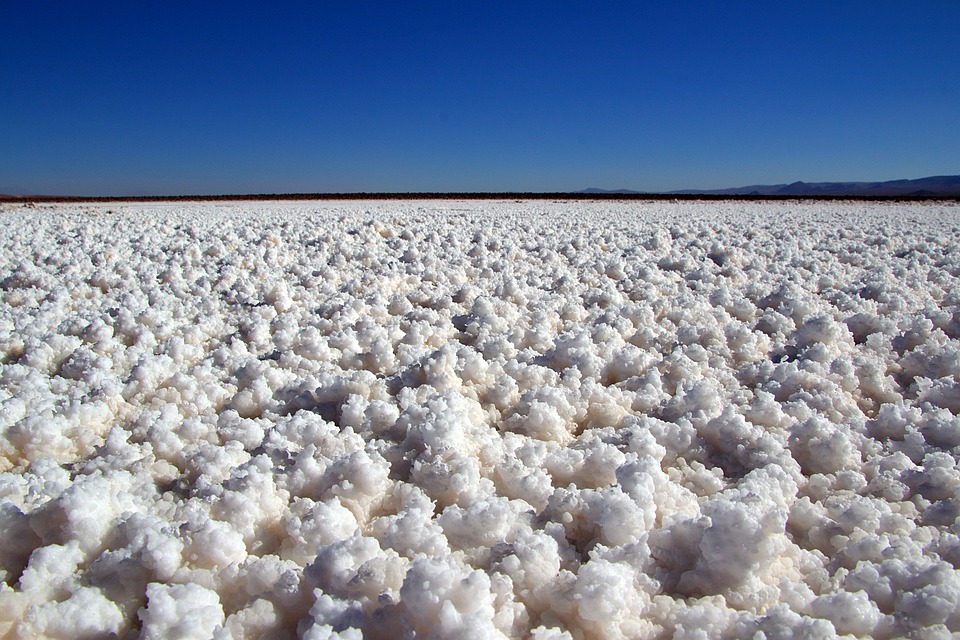
the Fifth Sunday after the Epiphany
February 9th, 2020
Today’s readings are:
Isaiah 58:1-12
Psalm 112:1-10
1 Corinthians 2:1-16
Matthew 5:13-20
Click here to access these readings.
“You are the salt of the earth; but if salt has lost its taste, how can its saltiness be restored?”
Good question, Jesus! How DO we make salt salty again? I mean, Jesus isn’t just asking how to make bland things salty, like if you cook up some eggs and they’re just kinda eggs and you want some spice to them. He’s not asking us how to put a bit of pizzazz on the plate and how to entertain a bored tongue. He’s not looking to add some color to your grey, some blue skies to your cloudy weather, some light, summer reading to your study of Scripture. He’s saying: what is salt is no longer salty. How do you make it salty again?
Think of it this way: if you were to go to Portland with your family or friends, and you walked around all day, shopping, eating at food carts, that kinda stuff, and you get home and your legs have that tired, city ache to them – you might be sore, but you’re still you. Or let’s say, God forbid, you take a tumble. Maybe you’ve got a bruise, maybe you broke a wrist. But even if you break a bone, you’re still you: yourself. Or if you’re sick, and even really sick, even to the point of death you are still who you are. I am Tim Hannon if I walk around Portland all day, break a bone, or am lying in the hospital. I am still me.
There are times, however, when we are not ourselves. Times of deep grief and despair can change us. Struggle and darkness can change us, so that when we look in the mirror, we don’t know who’s looking back at us. These are times of deep pain, when, if we are wise, or if we’ve got some good friends or family with a stern word, we say, “I’m not being myself.” How do you become you again? How do you ground yourself in who you are as a person, deeply and truly, inside and out?
And we Christians know that, really, we’re never truly ourselves. There’s something inside of us that makes us, no matter how hard we try, lose sight of the Good and the True that is calling out inside or each of us. We Christians call it “original sin”, but it’s that feeling that there is some Truth buried deep down inside of us and we just can’t figure out where it is. Christians for centuries have said, “I am salt, but I have lost my saltiness; restore me to who I am, to who I am truly meant to be!”
Who are you truly meant to be? Who are we truly meant to be? Who am I truly meant to be? I haven’t the foggiest, really. I keep trying to figure it out, but I keep on messing up (there’s sin for you). But I do know one thing: that even in my unsaltiness, even in my confusion and my vain wanderings, I know that I’m loved. I know that we all are loved. I know, and I want to tell you this morning, that you, you are loved.
And it is in this love that we find our true selves. You know, I said that I haven’t the foggiest idea who I really am, but that’s not really true. I catch a glimpse of it sometimes. I catch a glimpse of who I am meant to be in the love my wife has for me. I catch a glimpse of it each time my children run up to me and give me a hug. I see it when I talk to my good friends or when I reminisce with my sister. I have who I really am when visiting the hospital and when I baptized Cooper and Fiona last year. And I’ve seen a glimpse of who God made me to be, and who God is loving me into being, in the Eucharist, in partaking of it myself and in handing each of you, one at a time, the wafer or the bit of bread, and saying, “the Body of Christ, the Bread of Heaven.” In these times, I heard the voice of God whispering in my ear: this is who you are meant to be; and more!
In a little while we’ll be gathering for our Annual Meeting. We’ll hear reports, I’ll give you some figures about 2019, and we’ll vote in BAC members and delegates. And then I’ll ask you something: what has St. James been to you? And I want you to think about this, because it’s our foundation and our history and it’s important. And I want you, standing on that foundation, to ask another question: what is St. James meant to be? What does God hope for us? Who, in God’s heart of hearts, is St. James? Not just what do we feel like doing here at Church but what does God Almighty, the Creator of Heaven and Earth, who took flesh upon himself so that he could live with us and die for us, who does God want to love us to be? And how can we be ever more open to that love?
